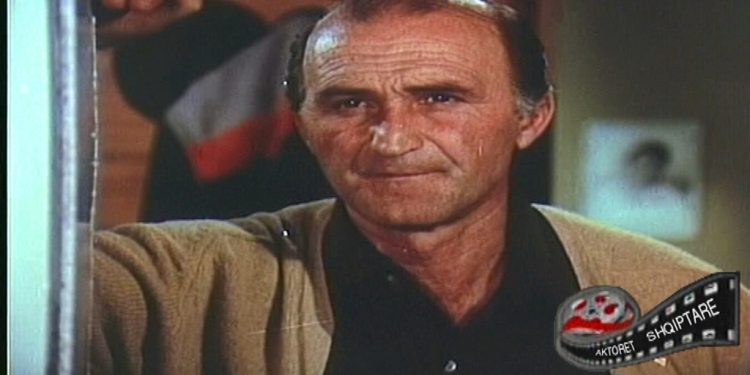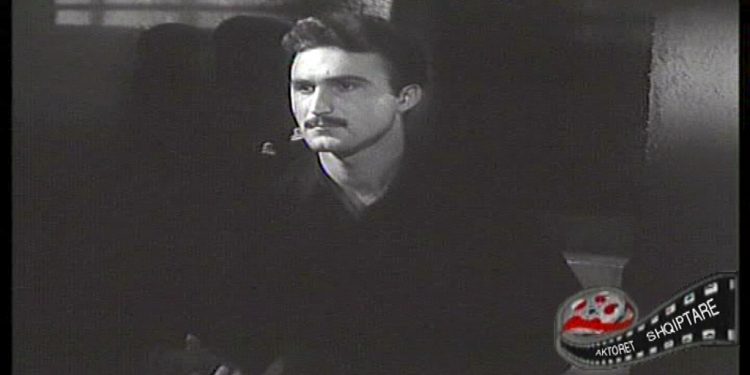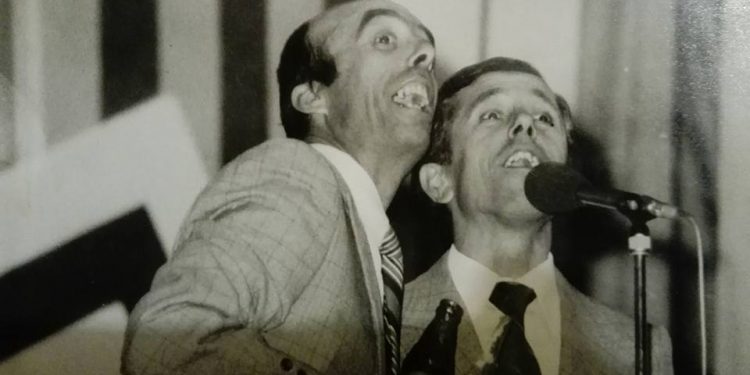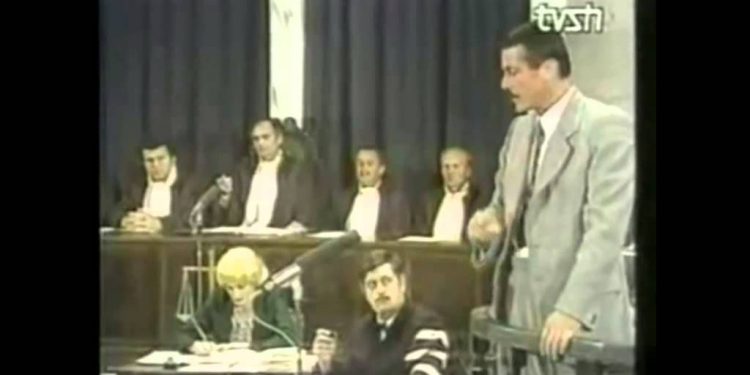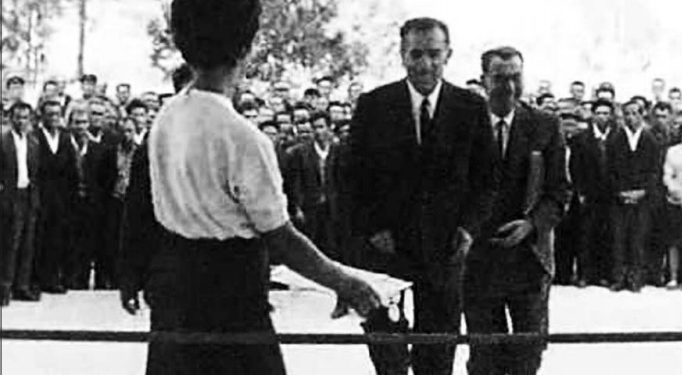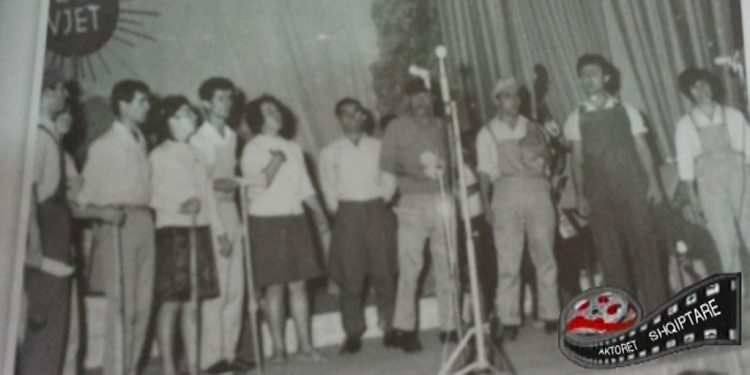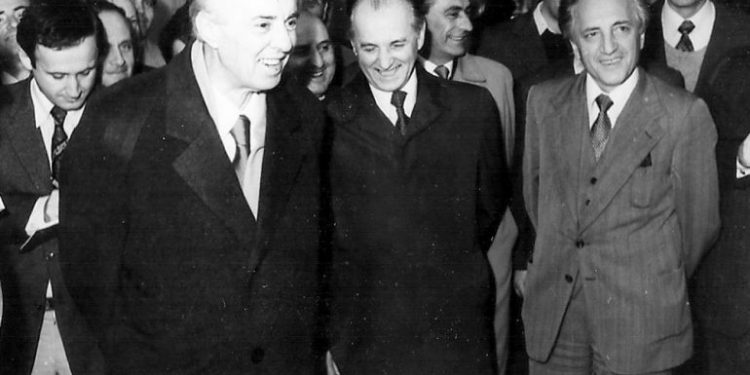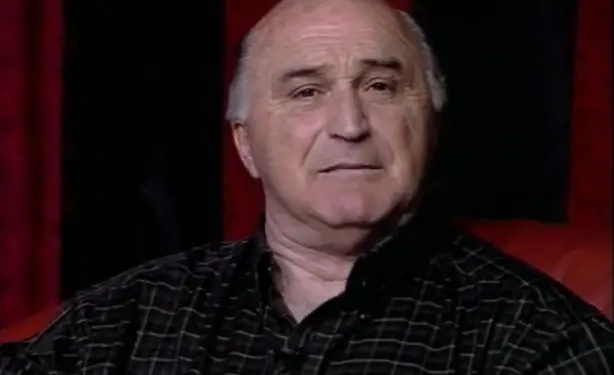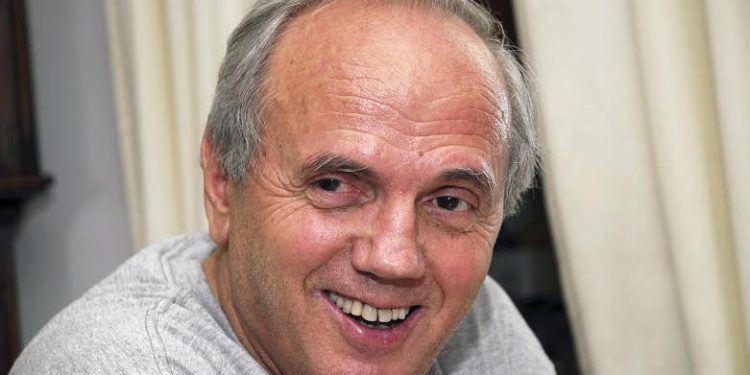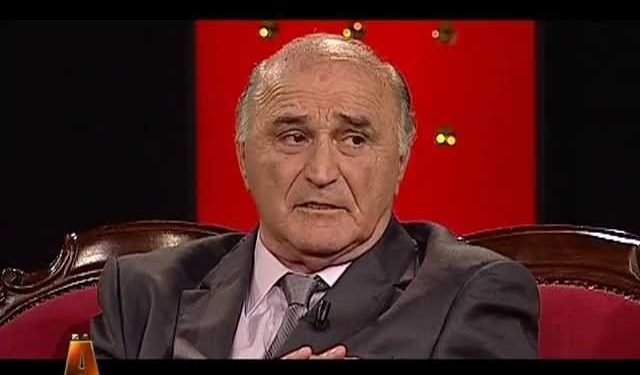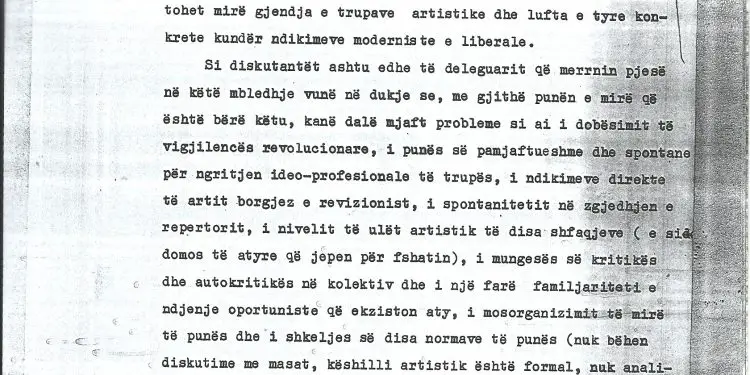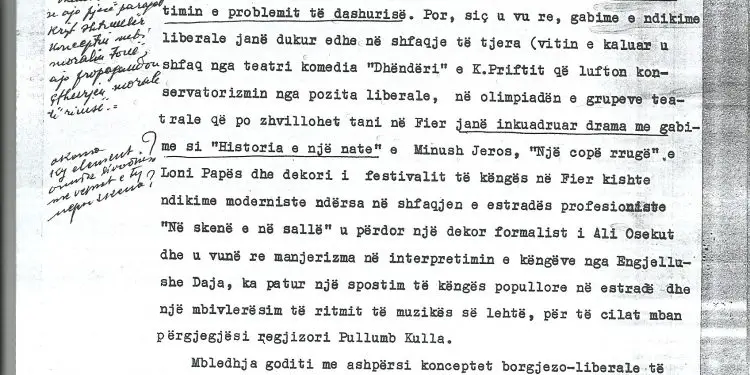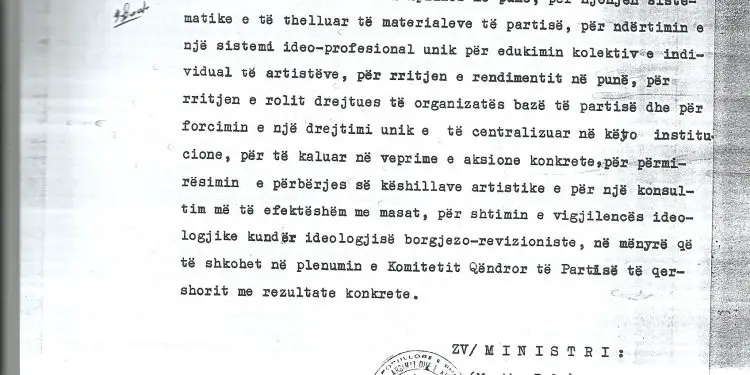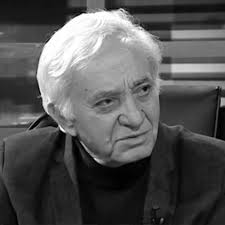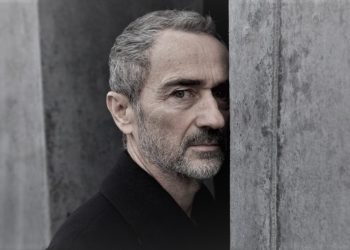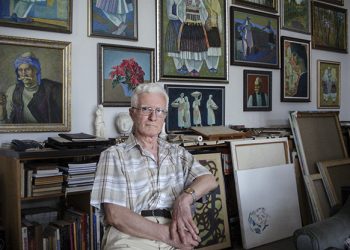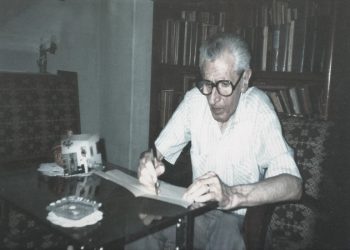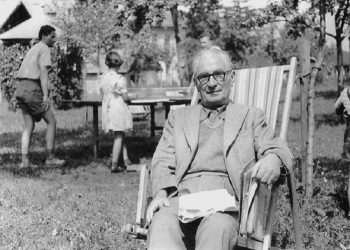Dashnor Kaloçi
Memorie.al publishes the secret report of 1973 of the Deputy Minister Mantho Bala, which informs the Central Committee of the ALP about the problems that had arisen in the Theater and Variety of Fier, where the directors Leka Bungo and Pëllumb Kulla, had staged dramas with reactionary content of bourgeois-revisionist art. As well as the notes of Hysni Kapos, Ramiz Alia and Enver Hoxha in the relevant document for well-known directors, where for Leka Bungo, it was said “with a bad biography, as there are people implicated in the reaction and sentenced to prison by the popular government, opposed the Party Committee, saying: ‘Do you not want me to treat the ancient plants of Levan in the theater…?! “
The document that we are publishing in this chapter of the book and that is dated April 23, 1973, is an information report of Mantho Bala, (who at that time held the position of Deputy Minister of Education and Culture and at the same time that of the Chairman of the Culture Committee and Arts, which was directly subordinated to the same Minister, where the head was Thoma Deliana), who sent it to the Central Committee of the ALP, and at the top of that letter in capital letters is written: MARCH 15, 1973 FROM THE FIERA THEATER AND POETRY COLLECTION ”. So, as we have seen in other documents in the previous and other chapters in the pages of this book, everything was done in the context of the speech that Enver Hoxha had given in the apparatus of the Presidium of the People’s Assembly (on March 15 of the same year), where the main topic was: “Foreign bourgeois-revisionist performances and their impact on art, culture, literature and all the life of the country”. And in this context of the development of the events of that time, even in all cultural and artistic institutions of Tirana and all districts, meetings were held after meetings, analyzing and addressing the speech of the first secretary of the Central Committee of the ALP, Enver Hoxha, a speech which was given only a few days after the end of the 11th National Song Festival on Radio-Television (December 1972-January 1973), who was also the prologue of a great storm that preceded the strike of a number of a large number of writers and artists, who were later fired and sent to the deepest mountainous areas of Albania from south to north, and many others were interned or imprisoned by the communist regime. As we will see further, the report-information in question that is published in this chapter of the book, analyzes the Theater and Variety of the city of Fier, which at that time had as directors, Leka Bungon and Pëllumb Kulla, graduated with the first generation of students of the Higher Institute of Arts (later also specialized in directing), who were considered quite talented, but for biographical problems, both were sent to districts. Leka Bungo had even successfully tried a role as an actor in a very successful film (German officer in the film “Victory over Death”), which was shown and received with great fanfare for years in the People’s Republic. of China. Leka Bungo was also a well-known name in the young intellectual elite of those years in Tirana, not only for his appearance and way of life, but also because of the anecdotes with political content against the communist regime in power, that he brought out and spread them in his social circle. Which had made Leka with his wife (daughter of a well-known diplomat of those years), to be the object, or more precisely the character of the famous writer, Ismail Kadare, in his book “Winter of loneliness great”. Which are already known from the book of the well-known lawyer and politician, Spartak Ngjela, in one of the three volumes of his voluminous book, “The Bend and the Fall of Tirana” (Published by UET PRESS). What stands out is the analysis of the work done to the Theater and Variety of Fier, (always keeping in mind the archival documents we have available), the report-information of Mantho Bala, who sometime later would be punished by the regime itself communist, precedes an information of Feçorr Shehu, Deputy Minister of Interior and at the same time, the Director of State Security of those years, who specifies in detail the work of the director Leka Bungo, for staging the drama “The Story of a Girl” . Drama which in a way initially became the main cause, that Leka Bungo was hit and sent as a production worker, near the Ballsh Mechanical Plant. Which (ie the report of Feçorr Shehu, which is published in the following chapter), most likely, has made the report-information of Mantho Bala, not only fall into the hands of Petro Dode, Hysni Kapos and Ramiz Alia, but to Enver Hoxha, who, like his subordinates, has put the relevant notes with his writing in the document in question that we are publishing below in this article. And after all these problems, Leka Bungo would be followed and monitored regularly by the State Security until 1990, which is reflected in the following chapter and the relevant facsimiles. The same “fate”, ie the pursuit and surveillance by the State Security, would have his colleague and close friend, Pëllumb Kulla, which is already known for a long time from the archival document published by the director of known and not only. Like most of the other documents published in the pages of this book, this one is published in full, without any abbreviations.
I N F O R M A C I O N
ON THE DISCUSSION OF COMRADE ENVER HOXHA’S SPEECH
MARCH 15, 1973 FROM THE FIERA THEATER AND POETRY COLLECTION
This meeting took place day after day in a warlike atmosphere, through principled criticism and self-criticism. It analyzed the entire work of these two collectives in the spirit of the recent speeches of Comrade Enver, trying to highlight the state of the artistic bodies and the fight against modernist and liberal influences.
Both the discussants and the delegates who took part in this meeting, pointed out that, despite the good work that has been done here, many problems have arisen, such as the reduction of revolutionary vigilance, the insufficient and spontaneous work to raise the ideological professionalism of the troupe, of the direct influences of bourgeois and revisionist art, of spontaneity in the choice of repertoire, of the low artistic level of some performances (especially of those given to the village), of the lack of criticism and self-criticism in the collective and a what kind of familiarity and opportunistic feeling that exists there, of not organizing the work well and of violating certain work norms (there are no discussions with the masses, the artistic council is formal, the premieres and jokes are not analyzed, etc.), of the omissions it makes director Llazar Moja in the implementation of socialist discipline at work, in the maintenance of socialist property, in the lack of work organization and accountability.
The leading role of the basic organization of the party has not been felt in all these directions. This has also happened due to the fact that the former secretary of the district party committee, Ismet Cibaj, has eliminated the leading role and had a sick family relationship with the directors Leka Bungo and Pëllumb Kulla, who were taken from Vlora without reviewing the biographies. of them (both do not have clear biographies, they have people condemned and implicated in the reaction. For Leka Bungo in the characteristic that came to him from Vlora it is said that “he has bourgeois concepts” and “he is arrogant”). In the spirit of omissions and weakening of vigilance appeared Kleanthi Dusha’s drama “The Story of a Girl”, which is permeated by the nihilistic note in dealing with the problem of love.
(After this paragraph, on the side, there is a note by Hysni Kapos and signed by him, where it is written: “It is not a matter of nihilism for love (What does this mean ?!) The basic thing is that that part presents the concept of morality in a completely crooked way It propagates the moral depravity of youth).
But, as it was noticed, mistakes and liberal influences have appeared in other performances as well (last year the comedy “The Groom” was shown by K. Prifti, who fights conservatism from a liberal position, in the Olympiad of theatrical groups that is taking place now in Fier, are included dramas with mistakes such as “History of a night”, by Minush Jeros, “A piece of road” by Loni Papa and the decor of the song festival in Fier had modernist influences, while in the performance of professional variety “On stage and in the hall ”, a formalist decor of Ali Oseku was used and mannerisms were noticed in the interpretation of the songs by Engjëllushe Daja, there was a shift of popular songs in the variety show and an overestimation of the rhythm of light music, for which the director is responsible Pigeon Tower.
(In this paragraph, on the side, where the name of Minush Jeros is mentioned, but Hysni kapo wrote: “Still this enemy element meadows with his actions in the scenes?).
The meeting hit hard on Leka Bungo’s bourgeois-liberal concepts. He bears full responsibility for the staging of the drama “A Girl’s Story” because he worked on it for a long time and defended it to the end, arrogantly opposing the discussion of the masses and the instructors of the party committee (he told them to them with irony: “Do you not want to address the problem of the ancients in Levan ?!”, or “This drama will be understood in ten years”). For this play he came up with “innovative” and “modernist” demands, to oppose other theaters. For this I work together with the painter Ali Oseku a formalist decor. He also misinformed some friends of the Ministry about the practice of conducting the debate in Fier, treating it as a bureaucratic pressure. But the direct egocentrism of Leka Bungo, his liberal influences and concepts have their basis in his work in the theater of Vlora, where he staged the drama “On the plate” by Fatos Arap, where the National Liberation War is seen from a sentimental position; Sheri Mita’s drama “Born a Girl”, which reflects regressive and conservative ideas, and treated in a formalistic spirit the drama “Lights” by Mimika Luca.
Leka Bungo was considered as an ideological myopic, intellectual, disregardful of superiors and subordinates, with political ambiguity in his head. He has also made such vile comparisons: “It is easier to find the first secretary of the Central Committee than the stage inspector”, etc. It is disguised under the umbrella of the actors and they have made concessions. In his self-criticism, Leka Bungo pointed out his ideological immaturity since he was in school and the minimization he has borne from the danger of liberalism. He said that he was influenced by foreign television and cinematographic shows, that he did not start from our reality, that he has liberal concepts. Ismet Cibaj, he said, created an ideological self-confidence in me. His motives and erroneous statements he motivated as haste, arrogance and naivete. He admitted the mistakes he had made in the performances in Vlora and the liberal attitudes at work. Appreciated the meeting and accepted the decision of the basic organization of the party and the collective to work in production, where it will put in place what it has lost.
The liberal attitude of the singer Engjëllushe Daja was also criticized in this meeting. She has a runaway father and brother in prison. He misbehaves at work and breaks the rules. He refused to sing at the concert for the State Security holiday. There have been modernist influences in the interpretations he has made of some light music songs and underestimation of folk music. The basic organization of the Party and the collective proposes that it go into production to be re-educated.
(After this paragraph, on the side there is a handwritten note of Hysni Kapos and signed by him, which says: “To go immediately, agree).
In her self-criticism, Engjëllushe Daja, motivates the mistakes as a result of not being in the Party materials and being frivolous. She said that she grew up from the party and that she did not know her parents, that she also sang good songs, but also slipped in foreign influences, she agrees with the decision to go to production, where she will correct mistakes.
The director Pëllumb Kulla, the theater director Llazar Moja and the secretary of the party organization, Stefan Spiro, also self-criticize for liberal attitudes and dismissals. Comrade Miho Gjini, inspector of the Ministry, in charge of the Party organization and the leadership of the Ministry, I go to this meeting to make self-criticism.
(After this paragraph, on the side, there is a note of Hysni Kapos with his writing and signature, where it is said: “But, Miho Gjini has more than once made such pelivanllëqës.)
After seeing the play “The Story of a Girl”, I approved of it and wrote in the newspaper “Drita”. His self-criticism on the part of us and the Fier theater team is generally considered good. He also criticized other specialists from Tirana such as Kujtim Spahivogli, Kudret Velça, Bujar Kapexhiu, Mario Ashiku, Mezin Pajon, etc., who approved this show and did not present any concerns.
Comrade Matish Shestani (head of the education and culture section in the Executive Committee of the K.P. district of Fier), took out the responsibility that the section has for the situation created and for the liberal concessions that have been made. Comrade Naunka Bozo (secretary of the district party committee), after appreciating the educational spirit of the meeting and noting the responsibility of the party committee, set out a series of tasks for the further improvement of the work.
In the end, the decision was unanimously approved for Leka Bungo and Engjëllushe Daja to go into production for re-education, for an indefinite period.
(After this paragraph, on the side, there is a handwritten note by Petro Dode, which says: “The Pigeon Tower must also be removed.”)
The meeting also included a series of tasks for improving work discipline, for the systematic and in-depth knowledge of party materials, for building a unique ideo-professional system for the collective and individual education of artists, for increasing the performance at work, for to increase the leading role of the basic organization of the party and to strengthen a unique and centralized direction in these institutions, to move to concrete actions and actions, to improve the composition of artistic councils and for a more effective consultation with the masses, to increasing ideological vigilance against bourgeois-revisionist ideology, in order to go to the plenum of the Central Committee of the Party in June with concrete results.
DEPUTY MINISTER
Tirana, on 23. 4.1973 Mantho Bala
Note by Enver Hoxha
What conclusions does the Ministry (Culture Committee) draw for these mistakes? Or is the self-criticism of Miho Gjini enough to approve this part?
Kana
follows
(This article is taken from the book “Writers and artists under communist dictatorship” by Dashnor Kaloçi, which is expected to be published soon)/Memorie.al




